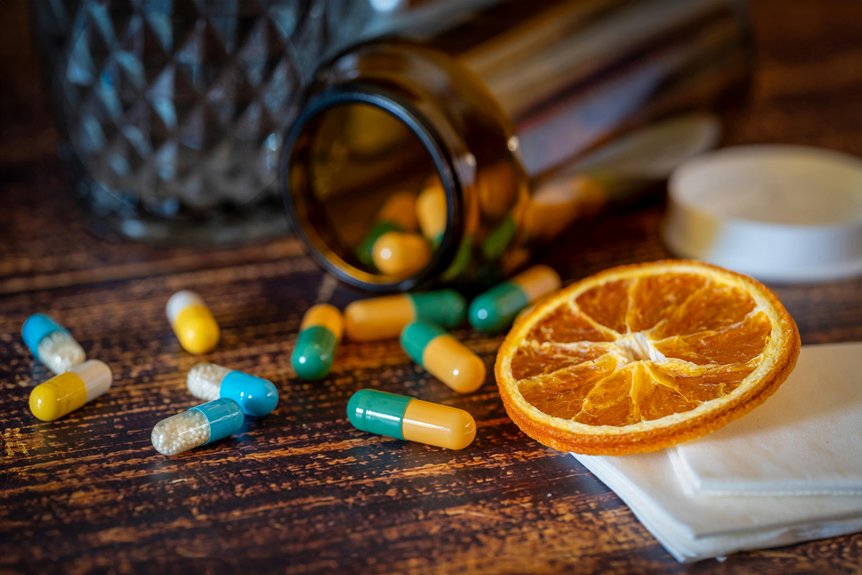Zinc Picolinate: The Most Bioavailable Zinc for Immunity, Hormones, and Skin Repair
Struggling with weak immunity, hormonal dips, or recurring skin flare-ups?
Zinc picolinate is one of the few clinically reviewed forms proven to deliver superior absorption, directly fueling immune strength, hormone regulation, and cellular repair.
Unlike basic zinc oxide, this chelated form passes easily through intestinal membranes, providing faster and more consistent results.
Let’s break down how zinc picolinate works — and why it outperforms other forms for whole-body vitality.
What Is Zinc and Its Role in the Body
Why Zinc Is Essential for Health
Zinc is a trace mineral that regulates more than 300 enzymatic reactions — from DNA synthesis and immune response to hormonal signaling and skin regeneration.
How Zinc Boosts Immune Function
It supports the production of T-cells, macrophages, and cytokines, helping your body detect and neutralize pathogens faster.
Top Dietary Sources of Zinc
Lean beef, oysters, pumpkin seeds, chickpeas, and fortified grains provide the richest natural sources.
Signs of Zinc Deficiency
Frequent colds, slow wound healing, hair thinning, brittle nails, and reduced appetite often indicate low zinc levels.
Zinc’s Role in Wound Healing and Brain Health
Zinc accelerates collagen synthesis for tissue repair and supports neurotransmitter balance, improving focus and emotional stability.
Daily Zinc Requirements
Adults generally need 8–11 mg per day, while therapeutic supplementation can range from 15–30 mg under clinical guidance.
Why Zinc Is Crucial for Hormones and Collagen
Zinc supports testosterone production, thyroid balance, and collagen formation — making it vital for both metabolism and youthful skin.
Understanding Zinc Picolinate and Its Absorption
Why Choose Zinc Picolinate for Better Absorption
Zinc picolinate binds zinc to picolinic acid, a natural chelator that enhances absorption through the intestinal wall.
Zinc Picolinate vs Zinc Oxide
Picolinate offers up to three times greater bioavailability, while oxide remains poorly absorbed and often causes gastric discomfort.
Best Time to Take Zinc Picolinate
Take once daily with food (preferably protein-rich) for steady plasma absorption and minimal stomach irritation.
How to Maximize Absorption
Avoid pairing zinc with large calcium or iron doses — they compete for the same intestinal transporters.
Zinc Picolinate for Deficiency Correction
Studies show that 30 mg of zinc picolinate daily for 8–12 weeks effectively restores serum zinc levels in mild to moderate deficiencies.
Zinc’s Impact on Immune Function
How Zinc Boosts Immune Cell Function
It enhances white blood cell activation and modulates inflammation to prevent tissue overreaction during infection.
Why Zinc Is Vital for Immune Cell Development
Zinc drives thymus gland activity — the training ground for T-cells, your body’s adaptive immune soldiers.
Can Zinc Reduce Infection Risk?
Clinical data links regular zinc supplementation with shorter cold duration and lower viral replication in upper respiratory infections.
How Zinc Controls Inflammation
It downregulates NF-κB and CRP markers, preventing chronic inflammation that weakens immune resilience.
Zinc Picolinate and Hormonal Health
How Zinc Picolinate Boosts Testosterone
Zinc acts as a cofactor for steroidogenesis, increasing luteinizing hormone (LH) and supporting natural testosterone synthesis.
Benefits for Hormonal Balance
Improves mood, metabolism, and reproductive function in both men and women through optimal endocrine regulation.
When to Use Zinc Picolinate for Metabolic Health
Ideal for those experiencing fatigue, low libido, or sluggish thyroid due to subclinical zinc deficiency.
Enhancing Skin Health With Zinc Picolinate
How Zinc Picolinate Boosts Collagen
Zinc supports collagen cross-linking and fibroblast activity — improving elasticity, firmness, and recovery from acne scarring.
Zinc and Skin Aging
As an antioxidant, zinc neutralizes free radicals, slowing wrinkle formation and pigmentation damage.
How It Regulates Oil and Acne
Zinc reduces sebum production and bacterial overgrowth, clearing acne without drying the skin.
Why Zinc Aids Wound Closure
It accelerates tissue formation and immune cell migration at wound sites — vital for skin repair and post-inflammatory healing.
Zinc’s Role in Reducing Inflammation and Oxidative Stress
How Zinc Reduces CRP and Inflammatory Markers
Consistent supplementation lowers C-reactive protein (CRP) and systemic inflammation.
Antioxidant Enzyme Activation
Zinc activates superoxide dismutase (SOD) and glutathione enzymes that protect cellular membranes from oxidative damage.
How Zinc Protects Against Cellular Stress
By stabilizing membranes and DNA, zinc slows premature cell aging and maintains immune integrity.
Zinc Picolinate and Reproductive Health
How Zinc Picolinate Boosts Male Fertility
Enhances sperm count, motility, and testosterone balance, especially in men with low seminal zinc levels.
Benefits for Female Reproductive Health
Regulates ovulation, reduces PMS severity, and supports progesterone balance.
When to Take Zinc Picolinate for Fertility Support
Best taken once daily with breakfast for steady mineral levels and improved hormone receptor sensitivity.
Optimal Dosage and Safety
Recommended Zinc Picolinate Dosage
For maintenance: 15–25 mg daily.
For deficiency or hormonal support: 30 mg daily for up to 12 weeks.
Zinc Toxicity Threshold
Avoid exceeding 40 mg per day long-term without medical supervision to prevent copper depletion.
Should You Take Zinc With Food?
Yes — pairing with protein or amino acids improves absorption and prevents mild nausea.
Preventing Copper Deficiency During Zinc Use
Take 1–2 mg of copper daily if using zinc supplements over extended periods to maintain mineral balance.

Leave a Reply